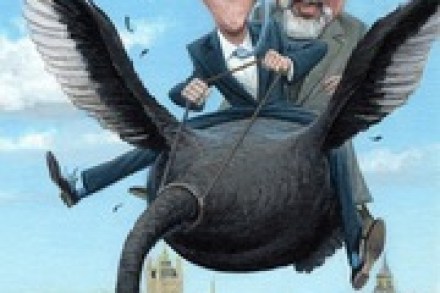Another five-point ‘pledge card’ from Labour
There is no PMQs today, so Ed Miliband is filling the time as gainfully as he can with a speech bashing the Tories. Unsurprisingly, he’s making rather a lot of last week’s Budget — particularly the 50p tax cut and the frozen personal allowance for pensioners — as well as of Peter Cruddas’s recent indiscretions. And so David Cameron will be described as ‘out of touch’ and all that. But there is something else with today’s speech: a prop, in the form of a five-point ‘pledge card’. I don’t think we’ve had one of these from Labour for a couple of years now, although they do tend to reserve them


















